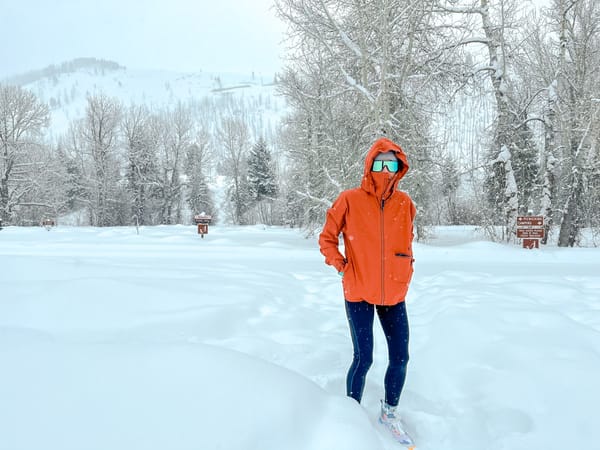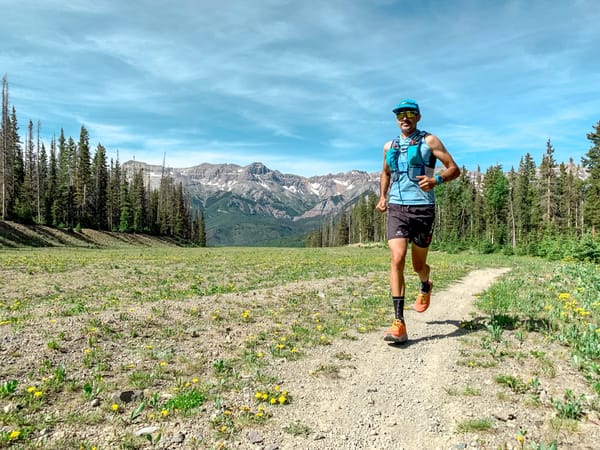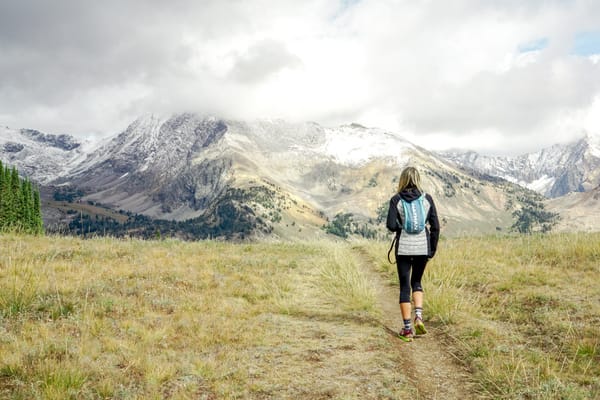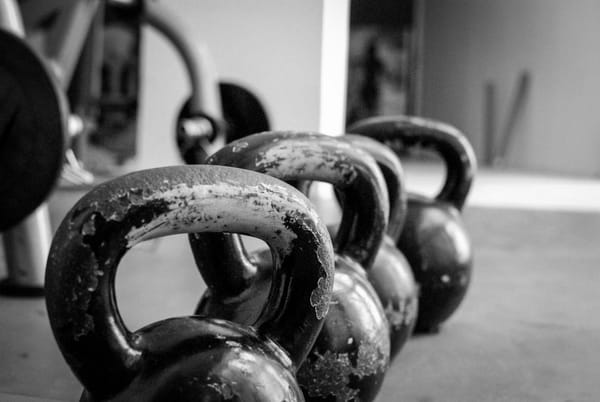Wellness Habits of Trail Runner Spencer Newell
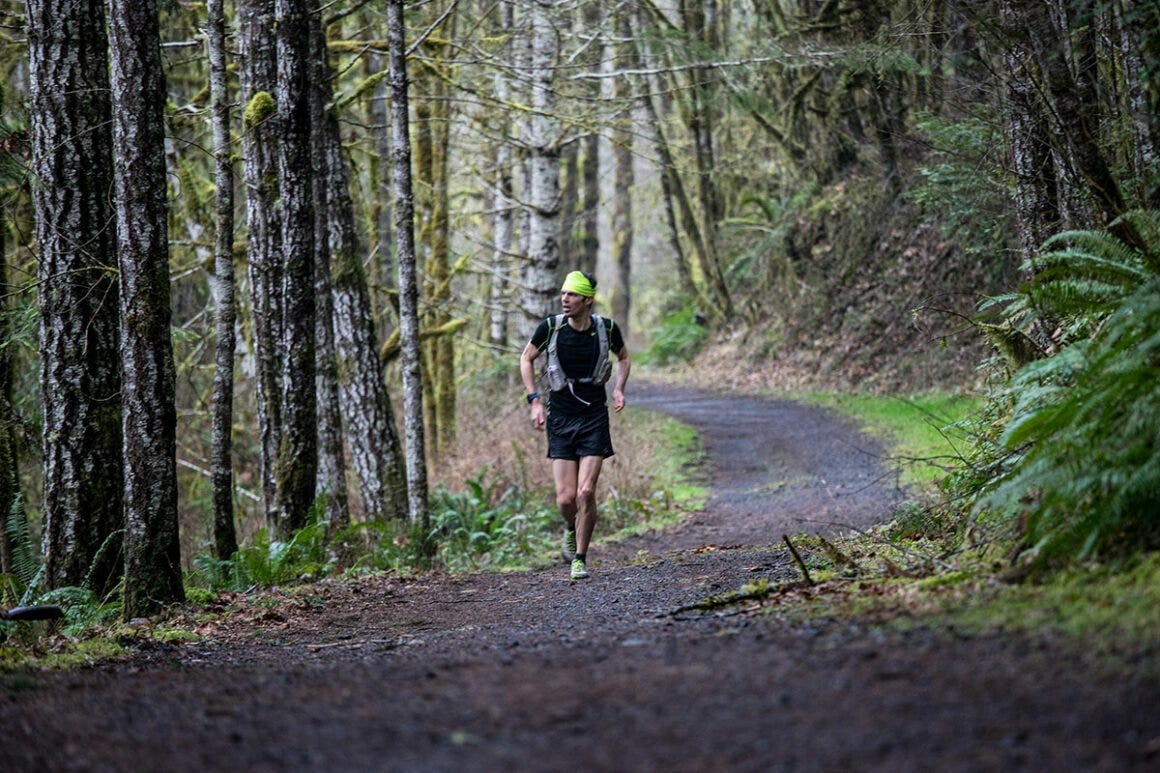
Spencer Newell is a lifelong endurance athlete who finds that being athletic is a way for him to push physical limits as well as help cope, and break, mental boundaries. Having been sober for 7+ years he shares his story of recovery to help give hope to others that might be struggling in silence, unwilling to face their own demons. Apart from being the co-founder of Novo Veritas, his lifestyle and wellness coaching company, he remains busy as a personal trainer at Rise Fitness in Bend, OR, an author of his addiction memoir, Appetite for Addiction, and an electronic music producer.
Primary activity: Trail Running Location: Bend, OR Caffeinated or decaf: Caffeinated
What is your primary mixed terrain activity or passion?
Trail running. It was being in nature and running on trails that helped him first cope with the challenges of being new to sobriety.
What impact does nature, and your movement in nature, have on your wellbeing?
Being in nature helps provide a meditative space to be more present in life.
What does your typical day look like and how do you make it productive?
In the mornings I spend my time writing music with the hopes of developing my skills to have music production become a second career. Late mornings I transition into being an athlete to run on trails until the early afternoon. From there I arrive at Rise Fitness to help people achieve their personal lifestyle, wellness, and physical training goals.
Tell us about your daily training routine. How do you juggle work and life?
It’s all about organization and compartmentalizing daily activities. Every morning is about music, every late morning/early afternoon is about training (running, stretching, lifting), and every late afternoon/evening is about training my clients. During each of those segments of time I do not deviate from those activities. My daily calendar is usually filled hour by hour.
What is one habit of yours that makes you a better athlete?
The understanding that recovery and rest is just as important as the training itself.
How do you measure success?
By gauging how much I appreciate the process of improvement.
Describe an adventure you undertook that had an impact on your life.
Racing Pine to Palm 100 mile endurance run in 2016. At the time I was early in sobriety so to be able to complete such a significant physical and mental undertaking helped show me what I was capable of without the influence of drugs and alcohol.
What apps, gear, or training tools can’t you live without?
Injinji socks, a must-have in blister prevention.
What is one struggle you’ve had and how did you overcome it?
Overtraining syndrome. In March 2020 I began to have symptoms of overtraining syndrome, a condition I had also experienced in 2017. After developing symptoms I immediately shut down all training and began a steady regimen of sleep and healthy eating. On top of that I was diligent in seeking medical advice from doctors and physicians that had experience in dealing with such a condition. One year later, I still feel that my body has not yet fully recovered.
What life lessons did you take from the experience?
That the ego, which ultimately led to this condition, is a powerful driver. If left unchecked, in my case, substantial repercussions can occur.
What habits have you developed to help manage your wellbeing and mental health?
It starts with having an effective relationship with a therapist, as well as being around other people that are in recovery. Furthermore, a strong meditation and mindfulness practice helps eliminate the “mind-less” noise on a daily basis.
What specific actions have you taken to rise beyond your struggles?
Getting sober. My personal struggles began to be addressed when I stopped drinking and using. Once I eliminated the chemical distractions I was able to begin working on the deeply rooted issues that have persisted in my life such as depression, anxiety, and the relentless need for reassurance.
What habits do you wish to develop to help manage your wellbeing and mental health?
Simply continuing to work on my sobriety and mindfulness practices.
Have you recognized triggers you now avoid to manage your mental health?
Yes. I now recognize the impact that certain situations can lead to such as when my body feels overly tired. When that happens I feel overly agitated, depressed, and less willing to practice any sort of mindfulness.
What advice do you have for someone in a similar experience as you?
Please don’t be afraid to ask for help. Sitting in silence, worried about others’ reactions, may only make the situation worse. The phone might feel heavy, but pick it up anyways and call someone you care about to tell them what is going on.
What nutritional camp do you subscribe to, if any?
Plant based. In the past I have struggled with under-eating, which ultimately led to my last instance of overtraining syndrome. My relationship with food has been closely linked to body image issues and insecurities that I don’t “look” a certain way.
When and where are you happiest?
During flow state when running on a trail. It doesn’t happen very often, but when it does it feels as if I’m floating through air.

